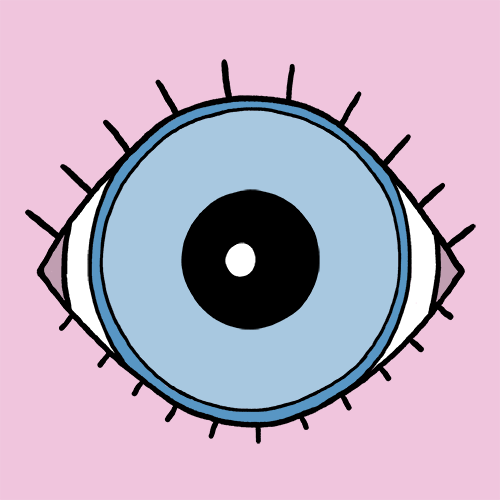Ep 07: Being a self taught artist learning illustration online with Angi Pauly
“As an artist, I think knowledge enriches your experience and the content you create. Whether it’s language, history, culture, politics. I feel like I learn equally from everything.”
It’s finally time for us to dive into a question that has been on many of your minds, what is the best way to learn illustration? This episode is the first of a three-part series on the best methods of picking up illustration. Do we all have to go to art school? What about the ships? Apprenticeships, internships, mentorships? But, today we're starting off with learning illustration online with Illustrator Angi Pauly.
What was your introduction to learning illustration?
The first thing that introduced Angi to illustration was fairytale books as a kid. All of the characters and fantasy stories had her drawing and sculpting since childhood. Growing up as a creative she naturally wanted a career in art because it was the most logical choice for her.
Starting in the two last years of high school, she began toying with watercolors that led to her infatuation with drawing. During computer labs at school, she would finish her classwork early so she could Google images to recreate the patterns and ink-hatching she saw in comics.
What is your favorite way to learn illustration?
Angi likes watching video tutorials, but it’s hard for her to focus on one video for too long. Instead, she enjoys finding a video, like Brian Lang’s on hard candy texture, and review the video at 10x speed. After each course she takes, she always tries to find her own way of recreating it because as she says "just to follow someone else's technique is a little stiff."
Skillshare, for example, is a fantastic platform for online learning that allows you to watch unlimited videos for just $15 a month. Or if you are ready to take your freelance business up a notch our very own Dina Rodriguez has a class on Creative Live, Make Things. Make Money. The Business of Lettering and Illustration.
She also seeks out podcasts and audiobooks for art theory to bolster her knowledge. Above all, she's learned the most from various Google Hangout groups. That way she has more opportunities for critique to help her realize if her values are wonky or if she needs a stronger composition. Angi finds that every job takes a different learning method so having a group to turn to makes being a creative way less hectic.
Any advice for people learning art for the first time?
Angi’s advice for first timers is practice drawing the things you like, whether it's your favorite food, characters, or phrases. It doesn’t matter if it’s crap. In fact, it’s going to be crap, at least in the beginning. So you might as well just practice and enjoy the process.
Don’t worry about getting more followers and likes. It’s going to destroy you and your passion before you have the chance to get really good at your craft. Make art because you enjoy it, and connect to a positive network of creatives where you get good feedback. Learn and expect nothing from your art. Just make.
Don't try to make something for people to like it and ignore what you really want to make. Don't feel forced to have one particular style. Angi thinks that ‘draw what you like’ is a piece of advice that gets taken for granted.
We see the people that we want to be, and we try to copy them. Don’t try to be them instead be inspired by their productivity. Don’t rob yourself of the most valuable thing you have, your perspective on seeing the world. Without that, how are you supposed to stand out? People think you need skills before you have taste. You can work on both at the same time.
Lastly, never compare yourself to others. You don’t have to be tormented to be an artist. You can be a functional human and make good art.
For someone who is self-taught, what do you think is the biggest challenge besides money?
Angi thinks staying motivated is the hardest part of being a self-taught artist. Its this lack of focus that encourages new artists to go to art school so they can be near people that inspire them to keep going. For self-taught people, it might be harder to simulate that kind of motivational community. This is why it's so important to be brave enough to create and find your own community to stay accountable.
In the next episode, Angi will be back to discuss another option for learning illustration, do we really need art school anymore?
Some of the resources mentioned:
Open Broadcaster System for recording video chats
Andco invoicing and expense tracking for freelancers
Hardcore History by Dan Carlin
The Subtle Art of Not Giving a Fuck by Mark Manson



